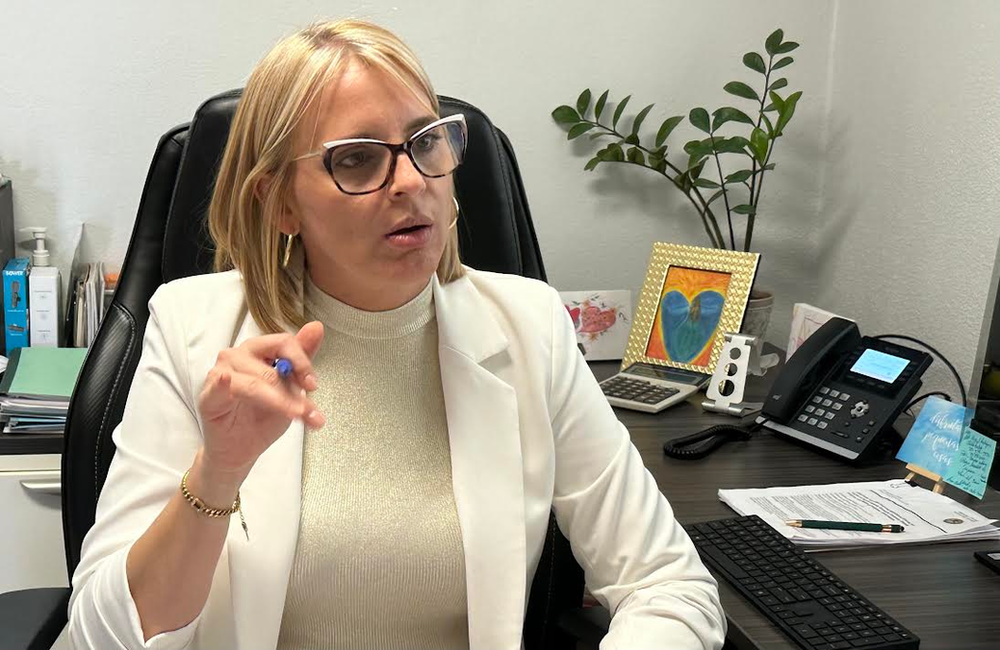
---
Highlighting that in just over a fortnight four women have lost their lives at the hands of their partners or ex-partners, Lisdel Flores Barger, the director of Hogar Ruth, called upon governor-elect Jenniffer González Colón to rally various governmental sectors, private enterprises, and nonprofit organizations to forge a collective effort with fresh strategies aimed at halting femicides and violence against women.
“We can no longer witness, almost as a matter of routine, horrifying deaths such as that of the woman who was strangled and subsequently discarded in a suitcase on the street,” Flores remarked, alluding to the recent weekend murder of 37-year-old Annette Gaya Concepción in Guánica, for which her 25-year-old partner has been charged. “The worth of the lives of women, who are slain over disputes, jealousy, or by misogynistic men who think they possess them, is downplayed. Within just a few days, there have been four femicides involving women who were strangled, stabbed, or shot. How many more must perish in what is supposed to be the safest place for them, their own homes? How many more must endure anxiety and terrifying fear? The time has come to unite for a genuine collective strategy to put an end to this senseless violence. We must protect lives and establish a society where women and their children can exist free from fear.”
The director of Hogar Ruth, a community organization that has supported survivors of domestic abuse, sexual violence, and stalking since 1984, emphasized that the governor-elect is attentive to this matter and, during her time as resident commissioner in Washington, advocated for financial support for the Hogar Ruth women’s shelter, where plans for a comprehensive center that offers multiple services for victims under one roof will advance. “This center aims to establish an innovative model that currently does not exist in Puerto Rico, similar to the successful Montessori Development Center project, the only one both within and outside Puerto Rico’s jurisdiction that caters to the children of survivors using a Montessori approach that incorporates trauma management.”
Flores proposed that initiatives of this nature, along with those focused on prevention, should be duplicated, and implementing these measures should be a priority across all levels of government and all social sectors in Puerto Rico.
She pointed out that throughout the four years since the establishment of the PARE Committee, while there were some positive outcomes, much more could have been accomplished.
“Organizations like Hogar Ruth receive funding aimed at service delivery, yet these funds predominantly support remedy work alone,” Flores explained. “There is scant opportunity to focus on prevention and education. We acknowledge that tackling this issue is a collective responsibility, but as a nation, we have failed to conduct campaigns that address the root causes. I have consistently stressed the necessity of developing sustained campaigns across all service platforms to clarify how these services can save survivors’ lives. For this, unified goals are essential across all sectors to ensure that guiding information for victims of violence is disseminated, enabling them to escape from dangerous surroundings. [This is] in addition to our ongoing insistence on the importance of education, among many other needs.”
Just this month, as the International Day for the Elimination of Violence Against Women approaches on Nov. 25, there has been a rise in killings of women in Puerto Rico. Since Oct. 25, four femicides have occurred: Claudia Martínez Suárez, 33, was strangled in her home in Barrio Obrero on that day; Janice Báez Gracia, 50, was shot in Hormigueros on Nov. 1; Yesenia González Ayala, 49, was fatally stabbed in San Sebastián on Nov. 3; and Gaya Concepción, 37, was strangled on Saturday, Nov. 9 in Guánica, with her body discarded in a suitcase on the street in front of a school. Their partners or ex-partners have been charged with the murders, with some having confessed.
“At the shelter I operate, Hogar Ruth, we save lives daily of women who flee with their children from abusive situations,” said Flores, whose organization assisted 8,536 survivors and their children through its nine programs in 2023. “When engaging with victims, I have witnessed their pain, uncertainty, and turmoil firsthand. The first thing they often express when receiving our services is their ignorance of the available help; had they known sooner, they would not have felt so scared to leave. While leaving is challenging, the experiences shared with us reveal genuine hope. It fosters a vision of the future filled with optimism and a commitment to embracing a new life that addresses all the needs of the victim and their children.”
